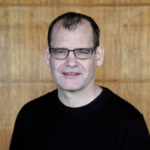Speaker: John D. Dunne, Distinguished Professor of Contemplative Humanities, University of Wisconsin – Madison
Date & Time: January 17, 2025, 4:30 pm EST
Location: Robertson Hall 016, Princeton University, and online
John D. Dunne’s recorded lecture
Details:
Keynote lecture of the Agency and Experience Yin-Cheng conference.
Tracing contemplative philosophy from Dharmakīrti in India up to contemporary “Chag-Dzog” traditions of Tibetan Buddhism, one can tell a contemplative and philosophical tale that leads from Dharmakīrti’s thought to the nondual theories and practices of contemporary Mahāmudrā and Dzogchen. That narrative begins with an emphasis on the epistemic primacy of experience and the problematized search for a metaphysics of consciousness that rests heavily on the role of “reflexive awareness” construed as the “empty luminosity” of the mind. In the Indian context, one attractive conclusion to the Dharmakīrtian approach is a type of pure awareness in which both the epistemic and metaphysical concerns are resolved in an experience of cessation. Yet in the Tibetan context, this outcome proved unattractive to such an extent that cessative experiences were seen as disastrous sidetracks on the road to awakening. Simplifying this complex narrative, this talk will examine why the Chag-Dzog traditions arrive at such an aversion to “blank mind” states and what this tells us about the primacy of experience, the nature of consciousness, and the problem of agency in the awakened state of a Buddha.
About the Speaker:
 John D. Dunne (PhD 1999, Harvard University) serves on the faculty of the University of Wisconsin-Madison, where he holds the Distinguished Chair in Contemplative Humanities at the Center for Healthy Minds. He is also distinguished professor in the Department of Asian Languages & Cultures, where he has served as department Chair. His work focuses on Buddhist philosophy and contemplative practice, especially in dialog with Cognitive Science and Psychology. His publications appear in venues ranging across both the Humanities and the Sciences, and they include works on Buddhist philosophy, contemplative practices and their empirical examination and interpretation within scientific contexts. John Dunne speaks in both academic and public contexts, and he occasionally teaches for Buddhist communities, including the global Gomde network and Upaya Zen Center in Santa Fe. In addition to his appointments in the Center for Healthy Minds and the Department of Asian Languages and Cultures, he is a Fellow of the Mind and Life Institute, where he has previously served on the Board of Directors, and he is an academic advisor to the Rangjung Yeshe Institute in Kathmandu, Nepal.
John D. Dunne (PhD 1999, Harvard University) serves on the faculty of the University of Wisconsin-Madison, where he holds the Distinguished Chair in Contemplative Humanities at the Center for Healthy Minds. He is also distinguished professor in the Department of Asian Languages & Cultures, where he has served as department Chair. His work focuses on Buddhist philosophy and contemplative practice, especially in dialog with Cognitive Science and Psychology. His publications appear in venues ranging across both the Humanities and the Sciences, and they include works on Buddhist philosophy, contemplative practices and their empirical examination and interpretation within scientific contexts. John Dunne speaks in both academic and public contexts, and he occasionally teaches for Buddhist communities, including the global Gomde network and Upaya Zen Center in Santa Fe. In addition to his appointments in the Center for Healthy Minds and the Department of Asian Languages and Cultures, he is a Fellow of the Mind and Life Institute, where he has previously served on the Board of Directors, and he is an academic advisor to the Rangjung Yeshe Institute in Kathmandu, Nepal.
About the Respondents:
 Bronwyn Finnigan: Bronwyn Finnigan is an Associate Professor in the School of Philosophy at the Australian National University and will serve as a Visiting Associate Professor in Philosophy at Princeton University during Spring 2025. Her work explores issues in the philosophy of mind, moral psychology, and ethics, in both mainstream and Indian Buddhist philosophical traditions. Supported by the Australian Research Council, her current research bridges Indian Buddhist philosophy and contemporary emotion research, examining the nature of fear, anxiety, and their cognitive and social regulation. She is also writing a book, Varieties of Buddhist Views on No-Self (under contract with Cambridge University Press). She is a member of the Cowherds collective that co-authored Moonshadows: Conventional Truth in Buddhist Philosophy (OUP 2011). Her early work raised issues about ethics and agency within Abhidharma and Madhyamaka Buddhist frameworks as well as for Aristotelian virtue ethics. Since joining the School of Philosophy at ANU and its Centre for Consciousness, her research has increasingly incorporated empirical perspectives on philosophy of mind, conscious experience, pragmatic rationality, and the nature, structure, and regulation of emotions.
Bronwyn Finnigan: Bronwyn Finnigan is an Associate Professor in the School of Philosophy at the Australian National University and will serve as a Visiting Associate Professor in Philosophy at Princeton University during Spring 2025. Her work explores issues in the philosophy of mind, moral psychology, and ethics, in both mainstream and Indian Buddhist philosophical traditions. Supported by the Australian Research Council, her current research bridges Indian Buddhist philosophy and contemporary emotion research, examining the nature of fear, anxiety, and their cognitive and social regulation. She is also writing a book, Varieties of Buddhist Views on No-Self (under contract with Cambridge University Press). She is a member of the Cowherds collective that co-authored Moonshadows: Conventional Truth in Buddhist Philosophy (OUP 2011). Her early work raised issues about ethics and agency within Abhidharma and Madhyamaka Buddhist frameworks as well as for Aristotelian virtue ethics. Since joining the School of Philosophy at ANU and its Centre for Consciousness, her research has increasingly incorporated empirical perspectives on philosophy of mind, conscious experience, pragmatic rationality, and the nature, structure, and regulation of emotions.
 Thomas Metzinger: Thomas Metzinger is a Professor Emeritus at Johannes Gutenberg University in Mainz and a member of the German National Academy Leopoldina. He has worked mainly in philosophy of mind, cognitive science, and applied ethics.
Thomas Metzinger: Thomas Metzinger is a Professor Emeritus at Johannes Gutenberg University in Mainz and a member of the German National Academy Leopoldina. He has worked mainly in philosophy of mind, cognitive science, and applied ethics.
This event is part of the Yin-Cheng Distinguished Lecture Series in Buddhist Studies.
Launched in September 2021, the Yin-Cheng Distinguished Lecture Series (印證佛學傑出學術系列講座) is a collaborative, multi-university partnership between Peking University, University of Oxford, University of Cambridge, Inalco (Institut national des langues et civilisations orientales), Princeton University, Harvard University, and the University of British Columbia.The Lecture Series is established in honor of Venerable Cheng-yen 證嚴, founder of Tzu Chi, and her mentor Yinshun 印順 (1906–2005), with the goal of promoting topics in Buddhist studies.
Free and open to the public. The event will also be livestreamed as a webinar.








